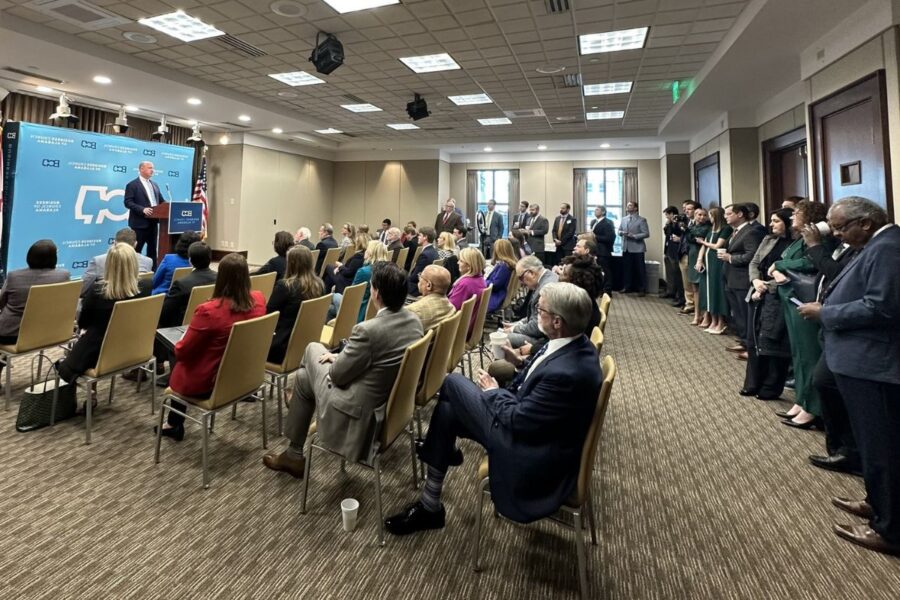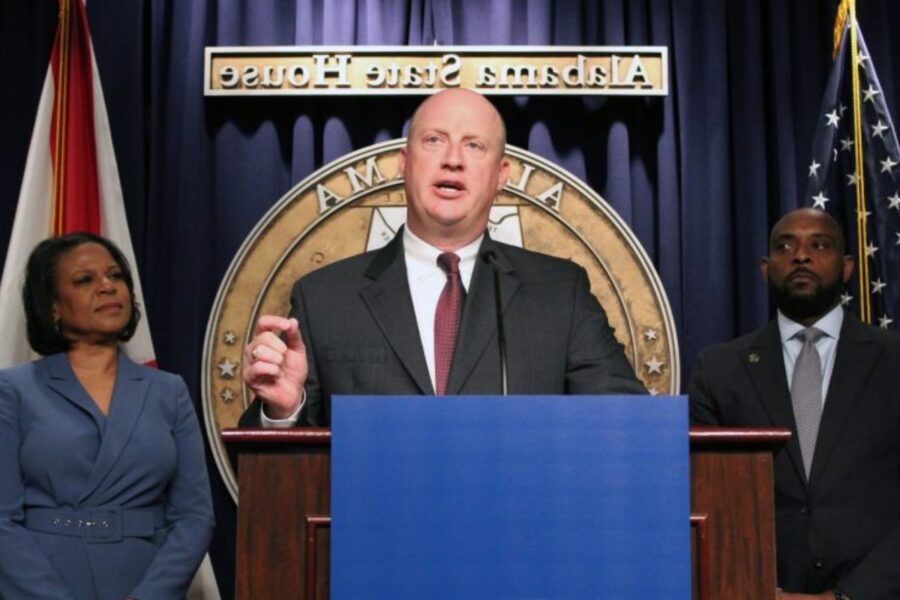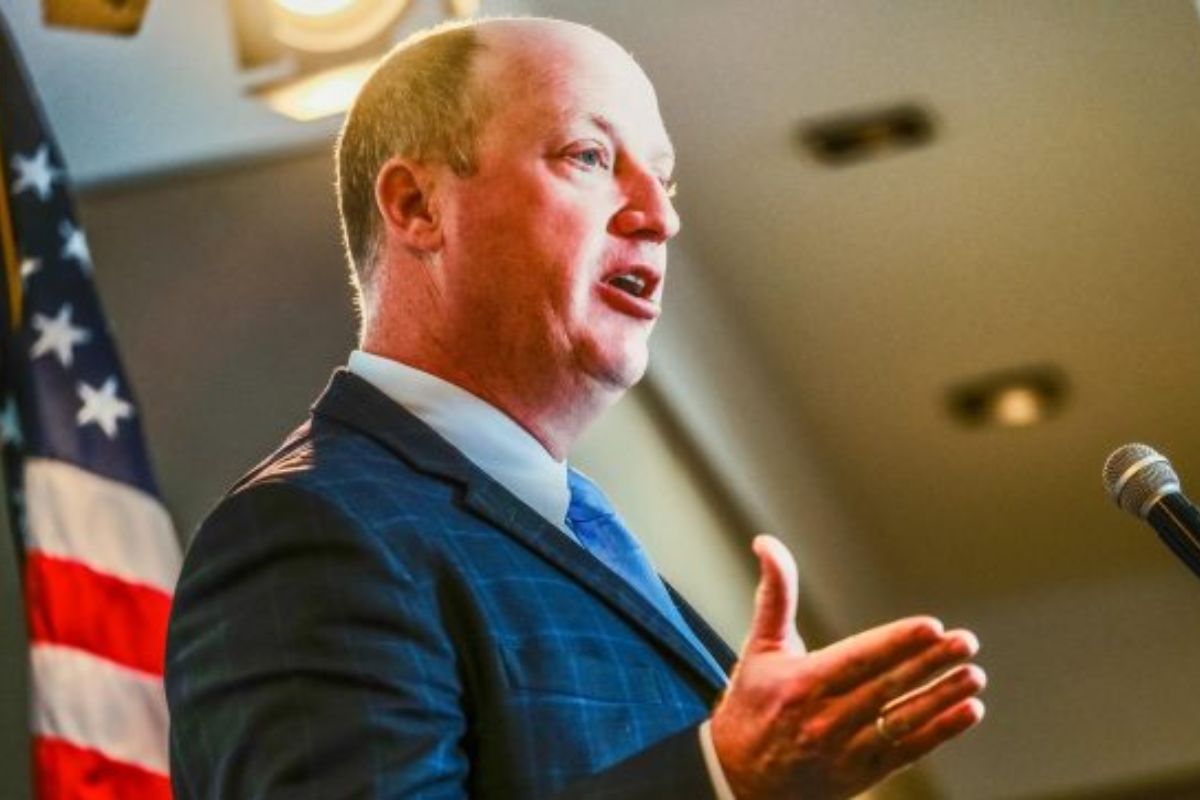Alabama Economy and Workforce: Alabama’s economic landscape is poised for a transformation in 2024, as Lieutenant Governor Will Ainsworth recently outlined his optimistic view during a keynote address to the Business Council of Alabama. Ainsworth’s strategic focus on workforce development initiatives and his commitment to bolstering key sectors such as aerospace, defense, and military support signal a proactive approach to ensuring sustained growth and prosperity.
With a keen eye on harnessing the state’s potential, Ainsworth’s vision paves the way for a promising future.
Lieutenant Governor Will Ainsworth’s Address to Business Council of Alabama
Lieutenant Governor Will Ainsworth delivered a comprehensive and strategic address to the Business Council of Alabama, highlighting key policy priorities crucial for the state’s economic growth and workforce development. Ainsworth’s speech encompassed various sectors of state government, emphasizing the importance of workforce development, education, childcare, small business support, and the state’s financial stability.
One of the central themes of Ainsworth’s address was the necessity of investing in workforce development to ensure that Alabama’s labor force remains competitive in an ever-evolving economy. He stressed the significance of providing individuals with the skills and training needed to excel in high-demand industries, ultimately driving economic growth and prosperity across the state.
Furthermore, Ainsworth underscored the critical role that education and childcare play in shaping a skilled workforce. By prioritizing access to quality education and affordable childcare, Alabama can cultivate a pipeline of talent equipped to meet the demands of a rapidly changing job market. Ainsworth’s address laid out a clear roadmap for advancing the state’s economic and workforce development initiatives, setting a positive trajectory for Alabama’s future prosperity.
Economic Optimism for 2024
Alabama’s economic outlook for 2024 showcases promising signs of growth and stability, underpinned by the state’s solid financial foundation and prudent fiscal management. Lieutenant Governor Will Ainsworth expressed optimism about the future, pointing to Alabama’s robust financial position. Ainsworth highlighted the successful repayment of rainy day accounts and the establishment of new savings accounts, which have positioned the state favorably for the coming year.
The prudent fiscal policies implemented by Alabama’s leadership have contributed to the state’s resilience in the face of economic challenges, setting the stage for continued growth and prosperity in 2024. Ainsworth’s confidence in Alabama’s economic trajectory reflects the careful planning and strategic decisions that have been made to ensure long-term financial stability.
As the state continues to prioritize fiscal responsibility and smart financial management, it is poised to capitalize on opportunities for economic advancement and development in the year ahead.

ALSO READ: ALDOT Secures Contract for Initial Phase of Highway 52 Expansion”
Focus on Workforce Development
With a keen focus on enhancing workforce development, Alabama is strategically addressing the shortage of skilled workers to foster business growth and economic prosperity. Lieutenant Governor Ainsworth has highlighted the critical need for workforce development in the state, recognizing the shortage of skilled workers as a significant barrier to progress.
To combat this issue, Ainsworth has proposed several key initiatives. These include the creation of a cabinet-level position dedicated to workforce development, the establishment of a new advisory board to provide strategic guidance, and the introduction of a workforce pathways diploma aimed at better aligning educational programs with the evolving needs of industries.
Additional Workforce Priorities
In continuing the discussion on workforce priorities, the joint effort spearheaded by Lieutenant Governor Ainsworth in Alabama emphasizes the importance of implementing key initiatives to address critical challenges and enhance the state’s economic landscape. Ainsworth highlighted three key priorities within the joint workforce effort: a child care tax credit, an extension of the overtime pay exemption, and the implementation of caps on property tax assessments. The proposed caps aim to address rising property taxes and create a more stable environment for businesses, with specific percentage limits for commercial and residential properties.
| Workforce Priorities | Description | Impact |
|---|---|---|
| Child Care Tax Credit | Aims to alleviate financial burdens on working families by providing tax relief for child care. | Encourages workforce participation and retention. |
| Overtime Pay Exemption | Seeks to extend exemptions to more workers, ensuring fair compensation for overtime work. | Promotes employee well-being and job satisfaction. |
| Property Tax Assessment Caps | Introduces limits on property tax increases to stabilize costs for businesses and residents. | Fosters a favorable environment for economic growth. |
Commitment to Aerospace, Defense, and Military Support
Demonstrating unwavering support for the aerospace, defense, and military sectors, Alabama’s commitment underlines a strategic focus on industry expansion and bolstering vital national defense capabilities.
- Leadership in Aerospace and Defense: Lt. Governor Ainsworth reaffirmed Alabama’s position as a leader in the aerospace and defense sectors, highlighting the state’s ongoing efforts to support and strengthen these crucial industries.
- Military Stability Commission Initiatives: Through the Military Stability Commission, Alabama is dedicated to becoming the most veteran and military-friendly state in the nation. This initiative showcases the state’s commitment to supporting and honoring those who have served in the military.
- Industry Expansion: Alabama pledges continued support for industry expansion within the state, emphasizing the importance of fostering growth and innovation in aerospace, defense, and military-related sectors. By investing in these industries, Alabama aims to enhance its economic resilience and contribute to national defense capabilities.

Conclusion Of Alabama Economy and Workforce
Lieutenant Governor Will Ainsworth’s address to the Business Council of Alabama highlighted economic optimism for 2024 and emphasized the importance of workforce development.
With a focus on key industries like aerospace, defense, and military support, Alabama is committed to enhancing its economy and supporting its workforce.
Ainsworth’s priorities align with the state’s goals for growth and prosperity in the coming years.
Our Reader’s Queries
What does Business Council of Alabama do?
The Business Council of Alabama (BCA) actively collaborates with state and federal government entities to champion reforms benefiting Alabama businesses. Its advocacy spans workforce training, college and career readiness, infrastructure, manufacturing regulations, healthcare costs, tax policies, and labor laws.
Who is the CEO of Business Council of Alabama?
In December 2022, Helena Duncan took the helm as the President and CEO of the Business Council of Alabama (BCA), the state’s preeminent business advocacy organization. With 35 years of experience in the finance sector, she brings a wealth of knowledge and expertise to her new role.
Is Alabama a good state for business?
In the fiercely competitive business arena, Alabama has silently and consistently climbed the ranks, gaining acclaim for boasting the nation’s most favorable regulatory environment and securing the sixth-best overall ranking for facilitating business operations.
How much is Alabama business license?
Local-level business licenses in Alabama can vary in cost, ranging from $15 to $1,000, contingent on your county and the nature of your business operations. Certain establishments, like restaurants or healthcare providers, might also require specialized licenses or permits.

